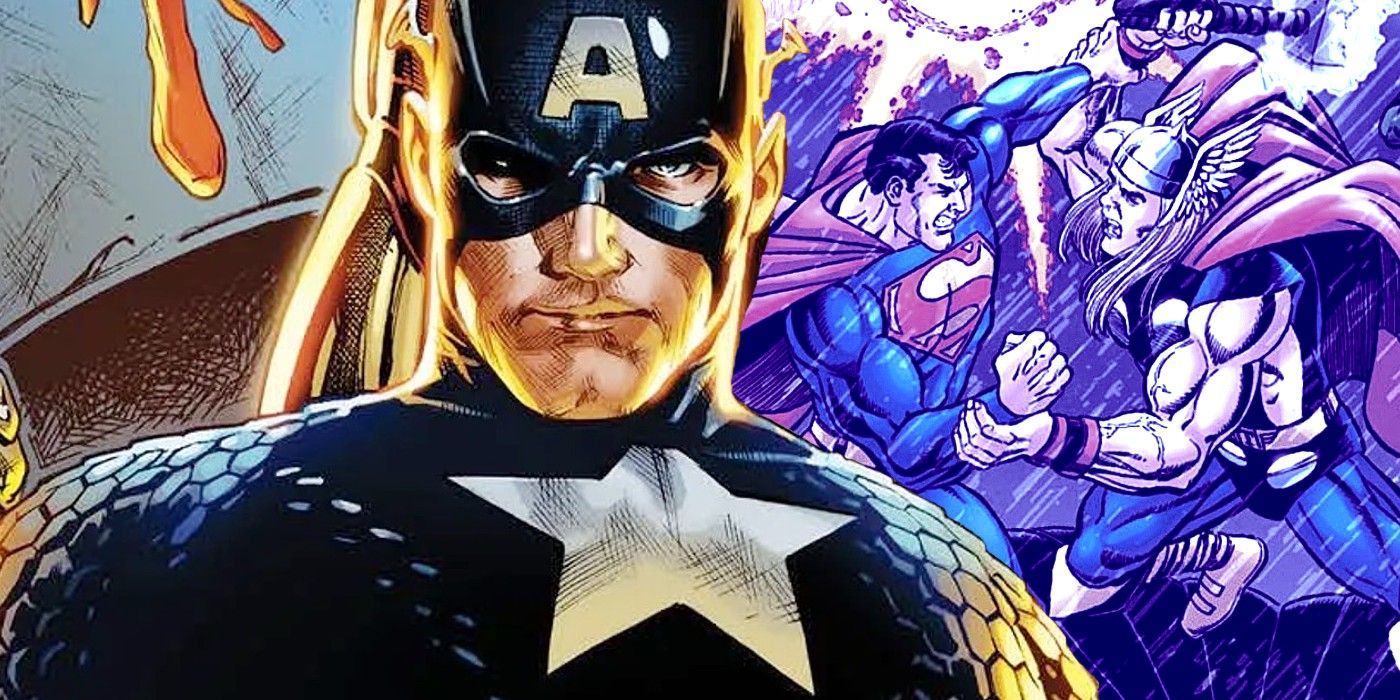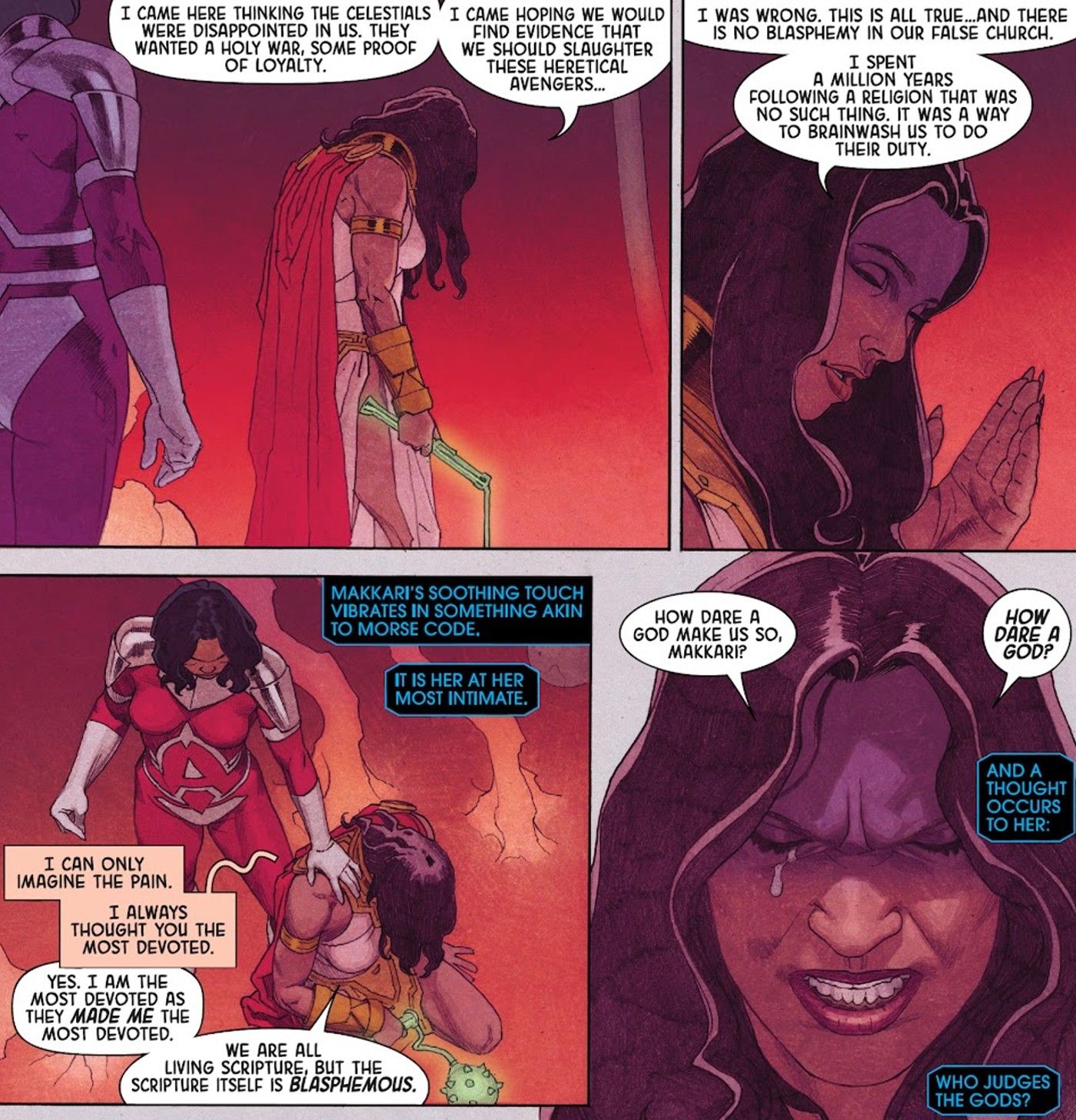While Judgment Day may be a Marvel Comics event, recent comments from writer Kieron Gillen shed a fascinating light on how its central characters differ from the superheroes of DC Comics. Gillen draws a fascinating ethical line between the Big Two comic universes, and comments on why the Eternals have always felt like they don't quite belong in the Marvel Universe.
The Eternals are set to battle the X-Men with the Avengers caught between them in Marvel's upcoming crossover event A.X.E. Judgment Day. The main event comes from Gillen and artist Valerio Schiti, and follows the former's revamp of Marvel's Eternals line, in which the immortal beings have learned dark secrets about their cosmic origins and come to the realization that their gods the Celestials never loved or even respected them. Now, as powerful beings vie for power, they're being tricked into instigating a mass extinction of Earth's mutants.
Kieron Gillen (Phonogram, Journey Into Mystery) sat down with Entertainment Weekly to dissect his approach to telling this story. While discussing the balancing act of the three super teams, he admitted to a bit of initial trouble connecting to the Eternals because he felt they lacked pathos - something he believes is crucial to the DNA of Marvel, saying:
For me, the core reason why the Eternals didn't work in the Marvel Universe is they have no fundamental tragedy. Spider-Man didn't become Spider-Man when he was bit by the spider, Spider-Man became Spider-Man when Uncle Ben died. This is opposed to DC characters, which (in broad strokes) are more about a fallen world. Wonder Woman is literally sent from heaven to earth to save us all; Thor is sent from heaven to earth because he's a d***.
The brainchild of Jack Kirby, Eternals was not originally intended to be set in the Marvel Universe, and the franchise generally hasn't taken much advantage of being set in a wider, shared reality (especially compared to comparable groups like the X-Men or Inhumans.) The idea that they don't match Marvel's usual formula therefore makes sense, but Gillen and Eternals artist Esad Ribic have masterfully reinvented them, piling on the pathos with revelations such as the fact that every time an Eternal is reborn, one of the humans they're meant to be protecting dies.
The idea that Marvel's characters are more grounded than DC's is often supported by their origins, but goes as deep as their core meaning in the wider universe. While Marvel's heroes are often the results of accidents or genetic alterations which disadvantage them in society, DC's heroes are predominantly aliens, demigods, or innate metahumans. The difference was explored in few places better than Kurt Busiek and George Perez's JLA/Avengers, where the two teams come to blows when the Marvel heroes conclude that the Justice League have set themselves up as the de facto rulers of their home reality, while DC's heroes see the Avengers as dangerous failures who are rightly viewed with suspicion.
As godlike beings who have inspired human myth, it's easy to see how the Eternals are closer to DC's blueprint than Marvel's, and yet as Judgment Day dawns, they're more human and more defined by pathos than ever, setting up a story that seems set to prove exactly what's so special about the Marvel Universe.
Source: Entertainment Weekly


